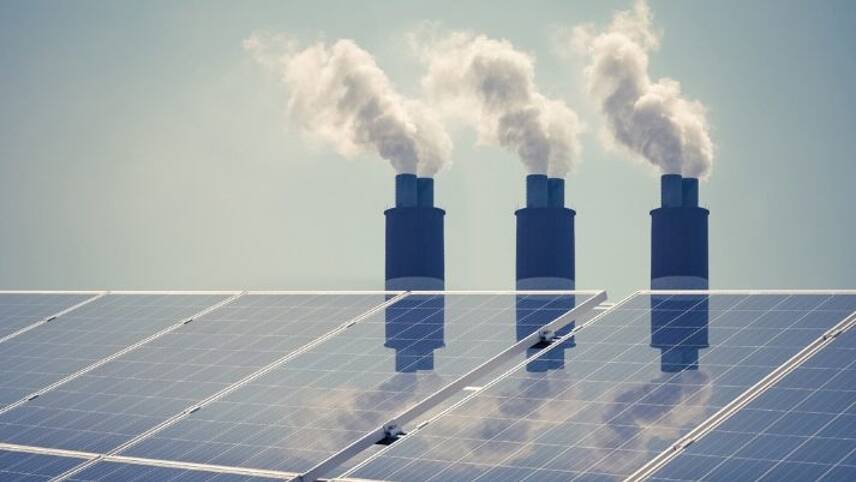Register for free and continue reading
Join our growing army of changemakers and get unlimited access to our premium content

Late last week, the IETA published a new net-zero vision, committing to only engage in lobbying activities aligned with the Paris Agreement. The body will engage with policymakers and businesses to promote “cap and trade” requirements and other market-based policies designed to create a strong economic incentive for the decarbonisation of high-emitting sectors.
Its new vision paper stresses the importance of carbon trading between nations and sectors in reaching net-zero within the timeline laid out by the IPCC in its landmark report on global warming. According to the paper, some nations and sectors will be able to deliver more than their fair share of emissions reductions, ultimately becoming carbon-negative, while others will struggle to meet net-zero in any scenario. But accounting must be improved in order to guard against double-counting or double use of market instruments, the IETA is warning.
The publication of the paper came as the IETA unveiled its latest carbon pricing forecasts, which predict that the average carbon price in the EU throughout the 2020s will be €32 per tonne of CO2 equivalent. This is an increase on the €27 average recorded between June 2018 and June 2019 but falls short of the €50 which think-tank Carbon Tracker has concluded would be necessary to decarbonise the bloc’s most-emitting sectors and nations in line with its Green New Deal climate targets.
A UK perspective
The UK this month successfully negotiated its post-Brexit emissions trading framework with EU lawmakers, who had previously expressed concerns that the UK’s system would undercut the bloc’s own carbon market. An agreement has been struck to reduce the existing EU ETS cap by 5% within a year, with further reductions to be confirmed as the UK approaches its 2050 net-zero deadline.
In light of this announcement, and with the publication of the UK’s post-Covid-19 recovery strategy imminent, the Zero Carbon Commission has published a new report calling for the UK Government to increase its carbon charge to £55 per tonne (€60) by 2025 and £75 (€81) by 2030. Such a charge would be necessary to deliver against upcoming carbon budgets and should be adjusted on a sector-by-sector basis, the report states.
Committee members are recommending that the revenue generated through carbon pricing is split between investments in low-carbon technologies in hard-to-abate sectors, incentives for energy efficiency improvements and a funding pot designed to “cushion” households against cost increases in fields such as heat.
Additionally, they would like to see carbon pricing on domestic heating complemented with a ban on the installation of traditional gas boilers in existing homes from 2030; and requirements for all existing properties to comply with Energy Performance Certificate (EPC) band C by 2035. Such recommendations have also been made by the Sustainable Energy Association and Committee on Climate Change this month.
These recommendations have public support, the report claims, citing a survey of 2,000 British adults carried out this month by Public First. Around three-quarters (72%) of respondents said they supported taxes on big businesses which produce the most emissions, coupled with exemptions for small businesses with small environmental footprints. In the same survey, 26% of respondents said they worried that a focus on the environment would slow down the economic recovery from the Covid-19 pandemic unless major policy changes are made.
The Zero Carbon Commission consists of key representatives from across the UK’s green economy, including former Committee on Climate Change chair Lord Turner, Green Finance Institute chief executive Rhian-Mari Thomas and Greenpeace UK executive director John Sauven. Its commissioners have been working to produce the report for six months.
“The Government’s future proposal for a UK Emission Trading Scheme does not go far enough to discourage the production of greenhouse gas emissions,” Grantham Institute director Sam Fankhauser said.
“We need to introduce a stronger, more consistent carbon price signal across more sectors of the economy if we want to accelerate the transition to a low-carbon economy. A clear price trajectory which is consistent with the Government’s net-zero ambition can enable businesses and consumers to adapt and provide greater certainty for investors in low-carbon technologies”.
Back in May, the Grantham Institute produced a policy briefing warning against reducing or pausing global carbon prices in order to spur economic productivity. It concluded that stricter carbon taxes could generate around £15bn a year for the UK economy through to 2030. Also advocating for stronger carbon pricing in the UK Government’s Covid-19 recovery package is the Aldersgate Group.
Sarah George


Please login or Register to leave a comment.